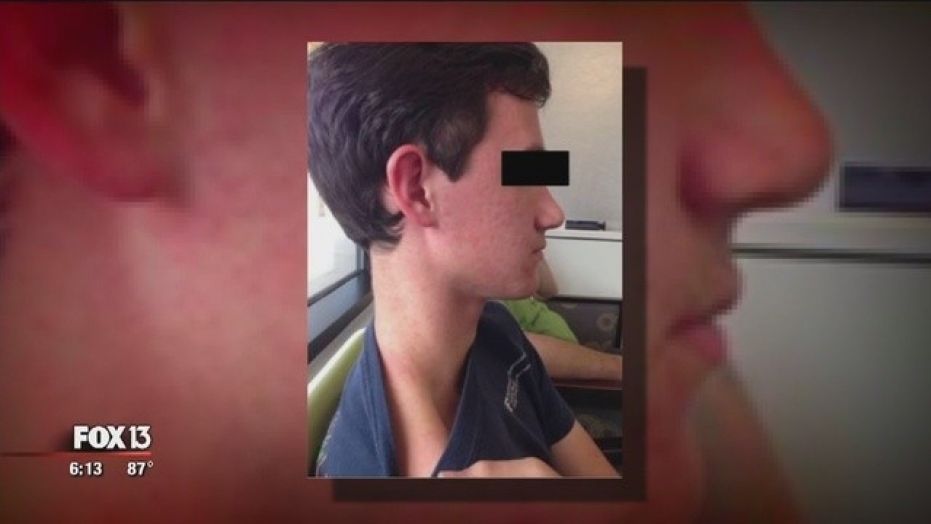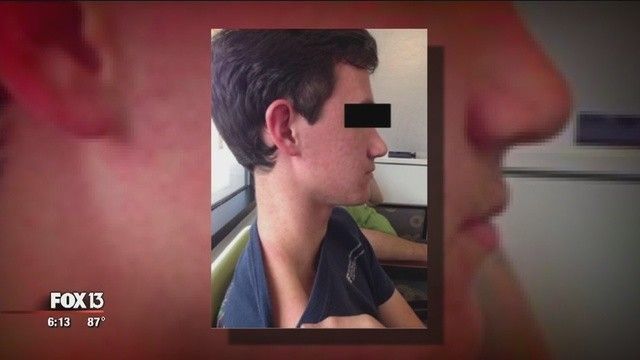[ad_1]

Unidentified teen went to a walk-in clinic exhibiting a fever and rash.
(Fox 13 News)
A mosquito-borne illness that could seriously affect the brain and was previously thought to be transmitted only to animals has been found in a human for the first time, Fox 13 News reported.
First discovered in 1964, the Keystone virus had only been found in animal populations stretching from Texas to the Chesapeake Bay. But researchers at the University of Florida recently confirmed that the virus has been found in a 16-year-old boy, who first complained of unexplained symptoms last summer.
After attending band camp in northern Florida in the summer of 2016, the unidentified teen went to a walk-in clinic exhibiting a fever and rash. It took doctors more than a year to make the diagnosis.
LASER POINTER BURNS HOLE IN BOY’S RETINA
University of Florida researchers have been sequencing the virus since August 2016. Because the time period coincided with the Zika virus epidemic in Florida and the Caribbean, laboratory samples were collected from the boy. Doctors were surprised to find that the samples came back negative for Zika or related viruses.
The teen was expressing only mild symptoms and was not reporting any symptoms of encephalitis, but after conducting viral cultures, researchers discovered that the boy had contracted the Keystone virus.
The Keystone virus can infect brain cells, and may pose a risk for brain infection.
There is currently no straightforward test to identify the Keystone virus, but Dr. Glenn Morris, director of the University of Florida’s Emerging Pathogens Institute, said several biomedical companies have reached out about developing one.
CHILDHOOD CANCER SURVIVOR RECONNECTS WITH FAVORITE NURSE 30 YEARS LATER
Morris said that although the virus had never previously been found in humans, the infection may actually be fairly common in northern Florida.
“There’s a likelihood that the Keystone virus is continuing to circulate in Florida, as it has for at least 50 or 60 years, and as it may well have for hundreds of years,” Morris told Fox 13 News. “This is one of our native Florida viruses.”
Doctors say there is a high likelihood of other undiagnosed cases of this virus. They suspect that there are a lot of people across the southeast that may have contracted the virus, but were never properly diagnosed.
Morris emphasized the need for additional research into the virus and into ways to test for the virus, as well as the ability to decrease the chances of contracting the virus by using mosquito repellent.
[ad_2]
Source link

